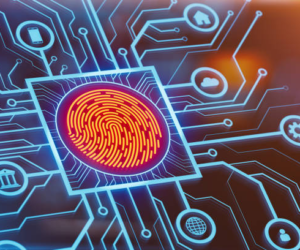Electronic ID verification has become an integral part of modern business operations, enabling organizations to verify the identities of individuals quickly and accurately. With advancements in technology and the increasing importance of digital interactions, electronic ID verification has found numerous use cases across various industries. This article will explore the top use cases of electronic ID verification, highlighting how it enhances security and improves customer experiences.
Electronic ID Verification
Electronic ID verification is a process that utilizes technology to verify the identities of individuals in a digital or online environment. It encompasses various methods, including online eidv services and electronic ID checks.
Online electronic ID verification services enable organizations to authenticate the identity of individuals remotely by validating their personal information against trusted databases and documents. This process ensures that the person’s claimed identity matches the information provided, enhancing security and reducing the risk of fraud.
Electronic ID Check
Electronic identity checks involve verifying the authenticity of physical identification documents, such as passports or driver’s licenses, using advanced scanning and authentication technologies. These checks help organizations ensure the validity and integrity of the presented documents, further enhancing the accuracy and reliability of the ID verification process. These electronic ID verification methods provide a seamless and efficient way to verify identities in today’s digital age.
Electronic ID Verification – Customer Onboarding and KYC Compliance
One of the primary roles of electronic ID verification are in customer onboarding processes. By verifying the identity of customers during account creation, organizations can ensure that they are dealing with legitimate individuals and mitigate the risk of fraud. This is especially important in industries such as banking, insurance, and fintech, where Know Your Customer (KYC) compliance is mandatory. Electronic ID verification streamlines the onboarding process by automating the verification process, reducing manual efforts, and providing a seamless user experience.
Top 5 Use Cases of Electronic ID Verification
1. Online Retail and E-commerce
In the world of online retail and e-commerce, electronic ID verification plays a crucial role in preventing fraud, protecting against identity theft, and ensuring secure transactions. By verifying the identity of customers before processing payments, organizations can minimize the risk of fraudulent activities, such as unauthorized purchases or stolen credit card information. Electronic ID verification also enables age verification for age-restricted products, ensuring compliance with legal requirements.
2. Sharing Economy
The sharing economy platforms, such as ride-sharing services and home-sharing platforms, heavily rely on online electronic id verification to establish trust and safety among users. By verifying the identities of both service providers and consumers, these platforms can create a secure environment for transactions. Electronic ID verification allows platforms to screen users, ensuring that only trustworthy individuals can participate in the platform’s activities. This enhances the overall user experience and builds confidence in the platform’s reliability.
3. Telecommunications and Mobile Services
Electronic ID verification is essential in the telecommunications industry to prevent identity theft and protect against unauthorized SIM card activations. By verifying the identity of individuals before activating new mobile connections or transferring phone numbers, service providers can ensure that the person initiating the request is the owner. This helps in reducing instances of fraudulent activities, such as SIM card swapping or unauthorized access to personal information.
4. Healthcare and Telemedicine
In the healthcare industry, electronic ID verification plays a critical role in safeguarding patient data and ensuring the privacy of sensitive medical information. Healthcare providers and telemedicine platforms use electronic ID verification to verify the identities of patients before providing remote medical services or granting access to electronic health records. This helps in preventing unauthorized access to medical information and ensures that healthcare services are provided to the intended individuals.
5. Travel and Hospitality
The travel and hospitality industry rely on electronic ID verification to enhance security and streamline check-in processes. Airlines, hotels, and car rental companies use electronic ID verification to verify the identities of passengers and guests, ensuring that they are who they claim to be. This helps in preventing fraud, enhancing security measures, expediting check-in procedures, reducing wait times for travelers
6. Government Services and Public Sector
Electronic ID verification is extensively used by government agencies and public sector organizations for various purposes. This includes applications for passports, driver’s licenses, social welfare programs, and voting processes. By verifying the identities of individuals, governments can ensure that services are provided to eligible citizens and prevent fraud or misuse of public resources.
Conclusion
Electronic ID verification has become a critical component of modern business operations, providing a secure and efficient way to verify the identities of individuals. From customer onboarding and KYC compliance to online retail, sharing economy platforms, and healthcare services, electronic ID verification finds numerous use cases across various industries. By leveraging electronic ID verification, organizations can enhance security, prevent fraud, streamline processes, and improve the overall customer experience. As technology continues to advance, electronic ID verification will play an increasingly vital role in ensuring trust and reliability in digital interactions.

